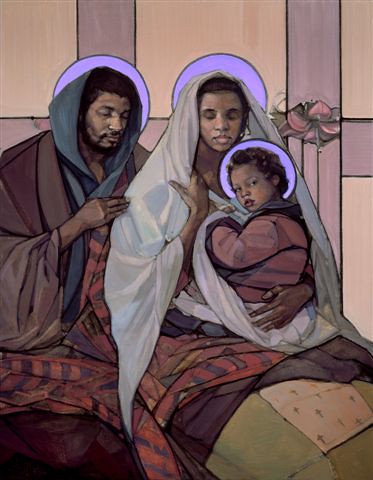[This is the text of a speech delivered at the Iowa United Methodist Annual Conference on June 7, 2014 in support of a resolution acknowledging the harm of the United Methodist Church’s policies prohibiting the ordination of lesbian and gay persons and the blessing of same-gender unions; recognizing that some clergy are nevertheless choosing to be engaged fully in ministry with persons who are lesbian, gay, bisexual, transgender, and queer (LGBTQ), including to perform marriages; and encouraging alternative solutions to church trails.]
It might seem that our response should be simple. It might be said that the Bible is clear and that the Book of Discipline is unambiguous. But we’ve been having this conversation for decades and are having it again here today because the gifts of lesbian, gay, bisexual, transgender, and queer persons — the ways LGBTQ persons are being blessed by God and are a blessing to others and to the church — raises a fundamental question with which we wrestle: where is God present, and how might we know clearly God’s calling?
Many of you likely feel settled on this issue, but many — perhaps more than we’d think — are uncertain of how faithfully to hold together the Bible, tradition, and the desire to act with love toward LGBTQ persons.
Blessedly, we’ve been having this kind of conversation from the earliest days of Christianity, from which we might learn for the present time. From the time Jesus walked the earth, some followers have said, “You cannot be righteous if you do not follow the food laws.” “You do not circumcise your boys as the law prescribes.” “You do not refrain from work on the Sabbath.” (Indeed, we are doing prohibited work on this day, the Sabbath). “Thus, you are not right with God,” it has been argued.
But we profess the faith we do as Christians today because of a trajectory of inclusion.* Jesus, Paul, and many of Jesus’s earliest followers looked at the same Bible and disagreed about all of the details of what it means to live in right relationship with God and one another. But they tended toward inclusion, trusting the idea that you will know the faithful by their fruits.
We are a church that is already ordaining LGBTQ persons. We are a church that is already blessing the love shared between people of the same gender. Not because we are rule breakers. Not because “anything goes.” Not because we can no longer name what is right and wrong.
But because we see the good fruits of LGBTQ persons. Because we are committed to honoring the blessing of those God has already blessed as lesbian, gay, bisexual, transgender, and queer.
Because ours is a tradition based on the biblical principle that God’s grace is inclusive and available to all. This resolution honors that biblical tradition of both faithful disagreement and seeking to recognize how God is made manifest in the good, life-giving, faith-deepening love shared by and between God’s people.
[I concluded the speech here in consideration of time but had also written the following:
My own life has been enriched and my faith strengthened in no small part by the love and witness of faithful LGBTQ persons. I pray that our church will know the same blessing by finally coming out and naming it. Saying “yes” to this resolution would be a meaningful step toward witnessing to the world God’s love for those who are lesbian, gay, bisexual, transgender, and queer.]
*I would not wish for this to be construed as replicating the old, problematic notion of Jesus as inclusive over and against exclusive Jews. Rather, we would do well to think about Jesus as a prophet in the tradition of the Hebrew prophets. My primary point here is that dominant articulations of Christianity we know today are possible in no smart part because of important ways the Bible was not read literally by early followers of Jesus.

